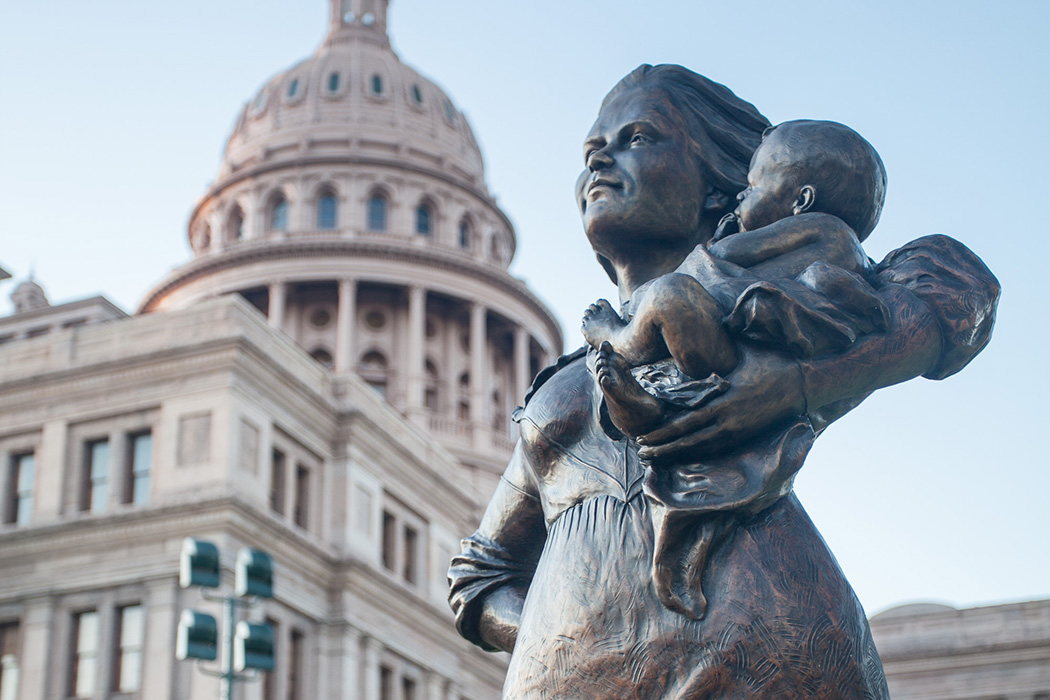
I guess I’m on the right track with our General Conference Odyssey, because the Lord did it again. He lined things up in my life to fit the talks of this particular session: Sunday morning of October 1989. Gordon B. Hinckley spoke on “An Ensign to the Nations” where he retraces the first pioneers who settled the valley of Salt Lake.
These pioneers arrived to a valley of nothing. They brought their few items and literally started everything from scratch. Have you ever spent any time thinking about what that actually meant, or looked like?
- No dinner unless you were lucky to find a rabbit or bird.
- No fresh water to drink unless you wanted to walk over to one or two of the streams that trickled over to the Great (salty) Salt Lake.
- No shade, no air conditioning, no light clothing
- No escape for a thousand miles or so
Having just started reading Founding Mothers, by Cokie Roberts, my eyes were opened wide to the comparison of all of these women.
Women Patriots: Still, after one hundred years, they were dependent on England for much of their comforts until England started overtaxing them. Only then did the women seriously begin making their own fabrics, etc. to become independent.
Women Pioneers: Seventeen years after the church was organized, these newly converted “city dwellers” found themselves in a desert with nothing. Nine years later, they were taking in the survivors of the Martin and Willey companies, giving them food, clothing, and a place to live.
I don’t mean to put a bad spin on our women patriots, by any means. They were remarkable women in their own right. How timely (in God’s hands) that these women were so adamant to strike independence from the motherland. Roberts goes into great detail found in the letters left behind to record the attitudes and feelings of these women.
Any time the idea of strong, brave women is brought up, we see feminists rise up and claim these women. Why is that? Why do they think a Feminist is always a woman who wants to enter into a man’s world? Why can’t there be a broad spectrum of women with a variety of interests, but they still honor their womanhood and (and here’s the word that chokes every feminist) domesticity?
Roberts appears to be looking for those early feminists and thinks to claim Abigail Adams, whom she writes much about. But one of Abigail’s best friends is Mercy Otis Warren, who was a great influencer with her written plays and poems. She was “educated like a boy” and clearly had a strong personality and opinion about how things should be done. But in Roberts’ words,
It would be a mistake to see Mercy Warren as some early version of a feminist; she regularly defended the domestic sphere as the proper place for women. While she was plotting and propagandizing, she was also pursuing the womanly arts.
Some have claimed our women pioneers were feminists because they too stepped out of their “womanly roles” and mingled amongst the men. This year, feminists have capitalized on the reason why Utah women got the vote before any other state in the union. I would argue that it wasn’t because they were feminists. I believe God used them to fulfill His purposes, as He did those women patriots. In God’s hands, we are His children, not worldly feminists who wish to make a name for ourselves by displacing men.
As Pres. Hinckley stated,
We ought to recognize something of the breadth and depth and height—grand and wonderful, large and all-encompassing—of the program of the Lord, and then work with diligence to meet our responsibility for our assigned portion of that program.
I believe we’re all in this together. God has given us assignments according to our interests and talents, in the time in which we live, and He expects us to use them for good. While a man and a woman, each, have their duties and responsibilities according to the nature of their gender, they are meant to work together to increase the purposes of our Heavenly Father.